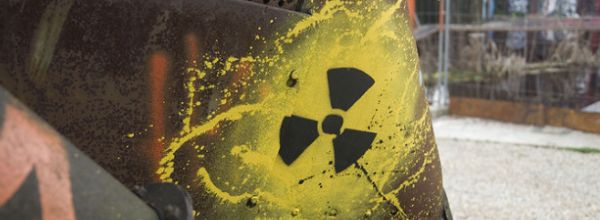If you are working in a scientific laboratory, it is very important to be aware of the various types of water available, because the purity may not be acceptable for your specific experimental application.
In most labs, there are generally two types of water piped in to the sinks:
Industrial Water
Industrial water is non-potable water that is not safe for consumption. It is not filtered and is considered dirty. You can use it for general applications such as washing machines and toilet bowls. You can also use it to clean lab dishes, but not as a final wash. Definitely don’t use it for any scientific experiments. I basically only use this water to wash my hands and rinse the lab dishes a couple of times.
Deionized Water (diH2O)
Deionized water is just what it sounds like. The ions are removed from the water via a filtration system. You can use this water for more than just washing your hands. DiH2O water is acceptable for a few scientific applications such as:
- Cleaning and rinsing dishes as the final wash. I usually rinse at least two to three time before drying.
- Making buffers. However, you should filter most prepared buffers with a 0.45 µm or a 0.2 µm filter, especially for long-term storage
Other Types of Water
There are many other applications in which diH2O is still not quite pure enough. This is where you might need to invest in a reverse osmosis (RO) water system.
RO Water
RO is a process of purifying water by using osmosis in reverse to remove not only ions, but also microbial and organic materials. Osmosis is the natural process whereby water diffuses from an area of low solute concentration to an area of high solute concentration.
How RO Works
To convert water into RO water, pressure is applied mechanically to overcome the osmotic pressure, thereby reversing osmosis to remove impurities and truly purify the water. In general, most labs use a combination of filter resins and deionized water to make ultra pure RO water, or they just purchase ‘Milli-Q’ -like systems.
Applications for RO water include:
- Making buffers
- Mass spectrometry applications
- Media for bacterial or cell culture applications
- High performance liquid chromatography (HPLC) applications
- General molecular biology techniques for PCR and cloning
RO water may still not be the right type of water to use, especially if you are using specific molecular biological techniques like qPCR.
If you are working with DNA or RNA it is very important that the water is free of nucleases. Therefore you may need to order DNase and/or RNase-free water.
In some cases you can use Diethylpyrocarbonate water, or DEPC water, but first read about some of the common DEPC myths.
DEPC Water
DEPC treatment of water inactivates nucleases, rendering the water nuclease free. However, this isn’t permanent and, therefore, your water can become contaminated later on. There is little evidence for health effects. However, you should use DEPC cautiously since it is hazardous.
Additionally, incorrect inactivation of DEPC water may inhibit downstream enzymatic reactions. Learn more about how DEPC works.
And lastly, one of the first ways we learned to purify water in basic science courses was to distill it.
Distilled Water
Distilled water has impurities removed through the process of distillation. This water is condensed steam from water that was boiled and cooled. However, impurities within the water can have lower or similar boiling temperatures and can also gather alongside your ‘pure’ water. Therefore it is important to have a better, more reliable source of pure water than distilled water.
There are still many scientific applications not mentioned in this article. It is important to be aware of the different types of water you are using and what is acceptable for your line of work. Many labs have their own purification systems, so check with others before deciding on which one to use. Need more to read? Here is another useful link to the various ways in which lab grade water is purified. Special note: if your lab does have its own system, make sure it is serviced regularly.
The impurities in water can ruin an experiment, so keep it clear.







